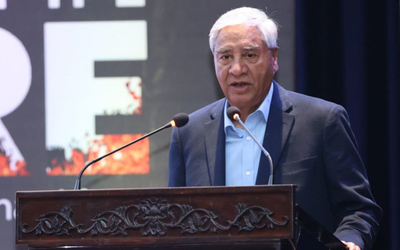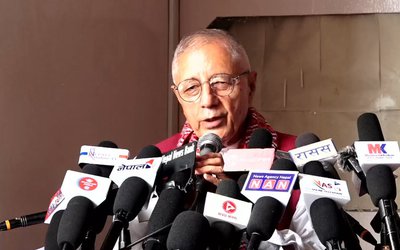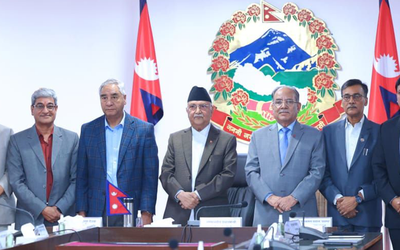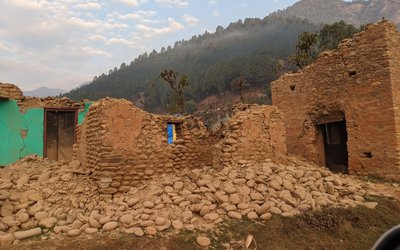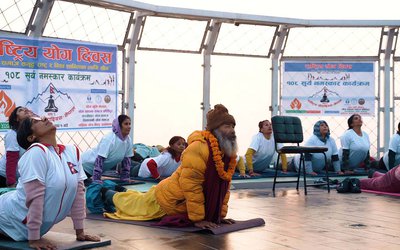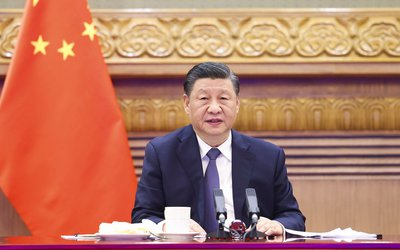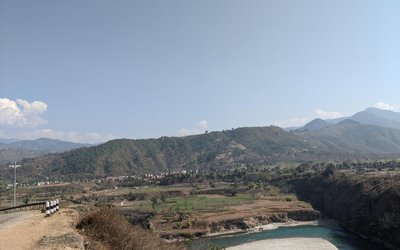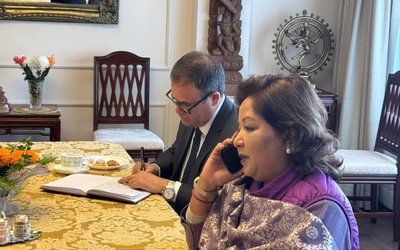
As the Constitution of Nepal is a by-product of the peace agreement among the country’s major political parties, the life of constitution depends on its continual support and ownership from major political parties.
If the recent political trends are any indication, the constitution seems to be the next victim of the growing tension among the major political parties. With the monopolization of power by ruling Nepal Communist Party, with nearly two thirds of majority in the House of Representatives, the main opposition Nepali Congress feels a threat to the constitution.
Some of the actions of the NCP support NC’s suspicions about the possibility of rampant violation of the constitution by the ruling communist party. The constitution has made specific provisions about the Speaker of the House of Representatives, National Assembly and State Assembly. The constitution specifically says that there is one woman out of the Speaker and Deputy Speaker, and the Speaker and Deputy Speaker of all three legislatures shall be representatives from different parties.
After the merger of CPN-UML and Maoist Center into one party, all the vice chairpersons from House of Representatives to National Assembly and State Assembly are constitutionally disqualified. Main opposition Nepali Congress has already threatened that it will stall the House until the resignations of the deputy speakers of the same party.
However, Prime Minister K.P. Sharma Oli has dismissed the demand saying it is unnecessary. The ruling party has its own interpretation defining the constitutional provisions on its own saying that speaker and deputy speakers have already left the party following the elections.
On the appointment of chief justice, the new constitution has invited another controversy. Recommended by the Constitutional Council, headed by prime minister following all scrutiny, the chief justice faces chances from the hearing committee of the House of Representatives rejecting the recommendation. With two thirds in its hand, the ruling party members have already threatened to reject the recommendation.
If the House committee rejects the recommendation, this is likely to create a political crisis. “Since the Constitutional Commission is headed by the leader of the majority party, rejecting his recommendation by a committee with majority of his own party means rejection of their own leaders as well,” said a constitutional lawyer. “This is a constitutional mockery.”
If the hearing committee rejects the chief justice’s recommendation, it means rejection of the recommendation made by the leaders of parliamentary party and prime minister.
If the ruling parties start bullying, it will give the main opposition party more ammunitions to fuel their protests. NC leader Sher Bahadur Deuba is likely to boycott the next meeting of the Constitutional Commission, giving the reason that his voice was not recognized.
“If the ruling party’s parliamentarians rejects the recommendation, what will be there to remain as a member? Let us allow them to take decisions on their own. There is no sense for us to be a part of the recommendation committee,” said a senior advocate. “The ruling parties must act responsibly.”
Other lawyers argue that the government is trying to infringe upon the constitution. Its recent decision to bar protests in some public places is taken as a threat. Similarly, the issuance of guidelines to control NGOs and INGOs is another move to restrict the right of individuals. Senior advocate Dinesh Tripathy holds the view that this government will not hesitate to curtail the rights.
However, the government supporters reject this argument. “Nepali Congress is unnecessarily raising the issue. This government is elected by people and it has been working as per the constitution. There is nothing wrong and unconstitutional about the action of the government,” said senior advocate and Member of National Assembly Ram Narayan Bidari. “We communists are more democrats than Nepali Congress and the so-called democrats.”
As the tension is growing between the ruling and opposition parties, it is likely to bring an unexpected constitutional crisis from the center to province and local levels.

Keshab Poudel
Poudel is the editor of New Spotlight Magazine.
- The Question Arises: Do Former Prime Ministers Prachanda, Nepal, And Dr. Bhattarai Support The Terror actions Of Hamas?
- Dec 11, 2024
- MD KUL MAN GHISING: December 25 Deadline For Upper Tamakoshi
- Dec 09, 2024
- ADB's REFP Reintegration of Returnee Migrants
- Dec 02, 2024
- The Relationship Between Kosovo And Nepal Is Robust: ELBERT KRASNIQUI
- Nov 29, 2024
- ADB’s REFP: Women (Em)Power
- Nov 28, 2024



